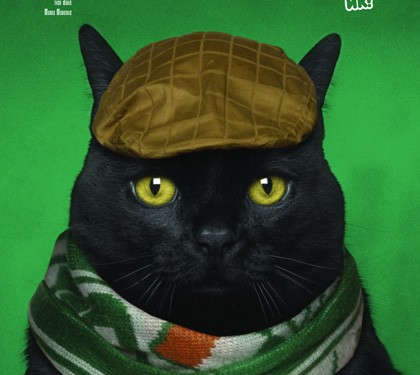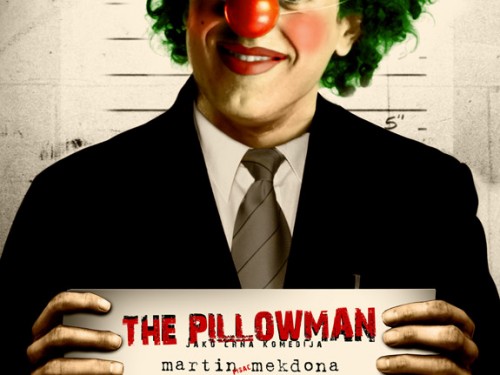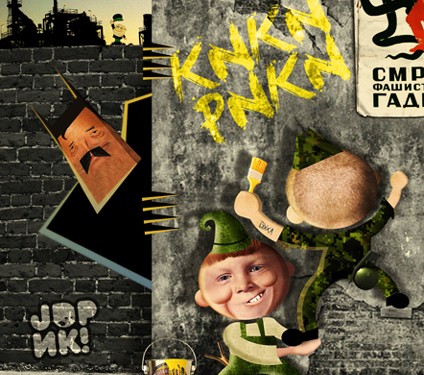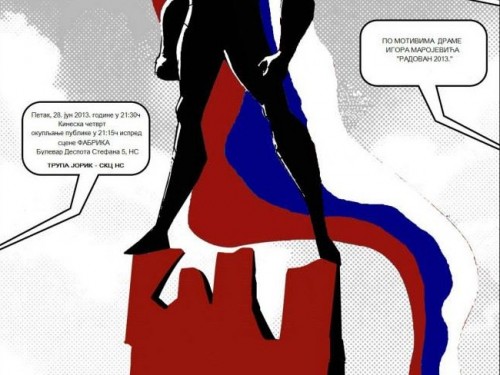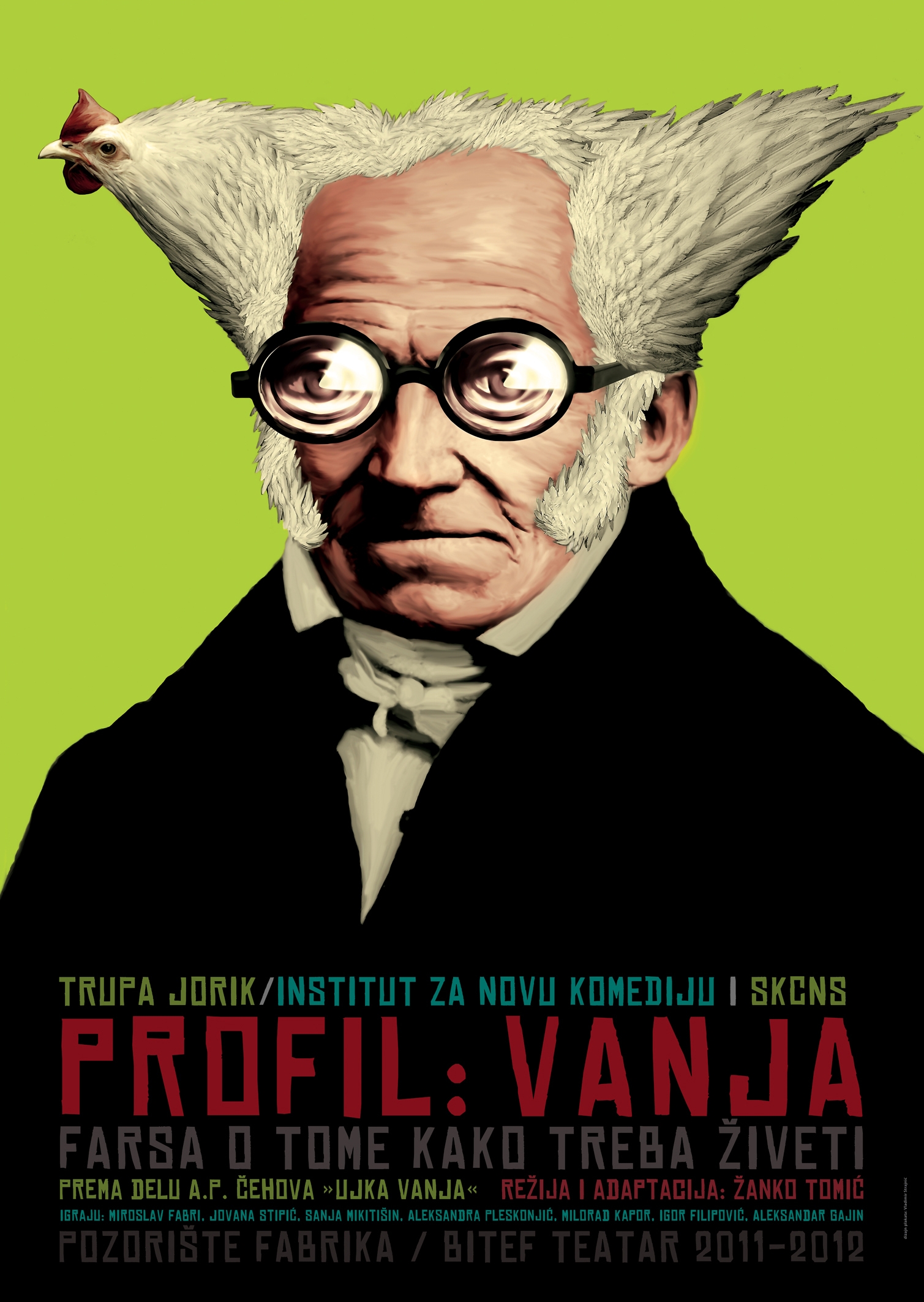
PROFILE: VANYA
THE FARCE ON THE WAY ONE SHOULD LIVE
For as much as one century we did not take Chekhov seriously, while he spoke and wrote to us that his works should not be performed so seriously. I admit – I myself had difficulty in rejecting the academic rigidity of the stage setting of Chekhov’s plays. Idolatry is a strange activity. Undoubtedly, all of us who a century later deal with him, and Chekhov himself, are infatuated with the man who takes the most credit for the promotion and installation of Chekhov as one of the greatest dramatists in the history of the world theatre – Mister Stanislavsky himself!
To understand that there is a great genre’s misunderstanding in the case of Chekhov, as much as one has arguments to claim so – is merely an academic position with another omen. To study his works and revive them in the comic key- oh, it is the completely different and far more difficult and compulsory discipline. What is more, it seems to demand the special explanation, although it is actually much more necessary to explain the fixed realistically-psyhological setting for the play which in its crescendo has two handgun shots from the immediate vicinity and two missed shots.
In the very beginning of the work I thought that the abandoning of the psychology and of experiencing would demand the radical dramatization and adaptation of the works. The further work on the play completely returned me to the original text, so our final theatrical product is complete Chekhov ( no matter how much it seems strange at first glance). There are some technical abbreviations in the dramatization (the reasons for it are mainly rhythmical, and, to a lesser extent, there was the wish to reject the temporal and geographical localization, unneccesary at this occasion).
The abolishment of the character of the Nanny Marina is motivated by my need to remove the sipahi’s iconography, mostly represented by this character, but also to remove the arch-maternal and therapeutic retreat, which other characters find in Marina. Only a few elements have been added, in the form of verbal fioritures, directed towards the intellectualistic oral hypertrophies – thus, serving merely as the amplifier of the style, but not of the meaning and content.
Profile: Vanya is the parody and tribute, self-parody and self-tribute. (Nevertheless, for the sake of the truth, it should be told that the parody, as the artistic method, is inextricably linked with the tribute). In the same way in which Uncle Vanya was to Chekhov. In the Chekhov’s play it is presented in the form of foreboding and suggestion, and in the play Profile Vanya n the explicit pop-artistic approach. (Remember that Uncle Vanya is actually the self-citation and remark to his own play Forest Spirit, written at the young age). Between these two plays, Doctor Chekhov, the exceptionally humorous man, but, at the same time, idealist and educator, people doctor’s and charitable man from whose actions the society in general benefited, experienced tuberculosis and bleeding. But, due to this inevitable fact, Chekhov became even more humorous. He discovered the super-principle of the ephemeris, ticklish transience, something which unites life and the theatre. He discovered that the knowledge and cognition is merely a small stain on the vast and general ignorance and lack of perceptiveness. Chekhov resembles life to such a great extent that he frequently misleads in the direction of the realistic interpretation. Nevertheless, he is not like that, but mainly the opportunity, those one or two hours of fame when the episode gains the greatest light and place at the proscenium, with which it does not know what to do. Something will, inevitably, as well as life, finish up with the sentence: “The curtain slowly falls”. Chekhov directs us towards the magical theatralism, acting of our own lives. Subsequently, the characters are not dramatis personae in the usual sense of the word. They are not predetermined to create the dramatic situation, but they are the forms of life and are here to create the theatre of ourselves. Simply, their effects have no irrevocable consequences, apart from pointingto some other irrevocable fact – that by each moment at the stage they are more distant from the beginning and closer to the end of their term of office in this world.
My intention was to create the play which tackles, caresses, inebriates, and makes bitter to a small extent, just as the champagne, which, according to the testimony of Olga Knipper, her husband Anton Pavlovich Chekhov drank up, and then in a tranquil way turned to hip, as if he was going to fall asleep – and breathed his last.
Žanko Tomić
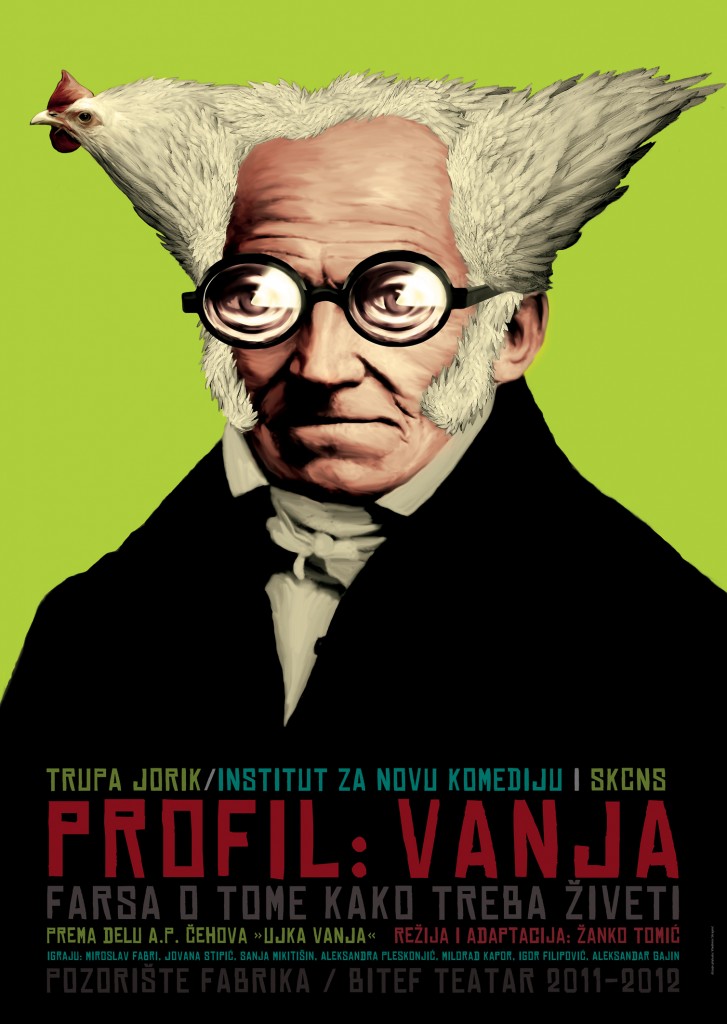
Based on the play by A.P. Chekhov, Uncle Vanya
PROFILE: VANYA
Directed and adapted by: ŽankoTomić
Roles:
Miroslav Fabri
Jovana Stipić
Sanja Mikitišin
Aleksandra Pleskonjić
Milorad Kapor
Igor Filipović
Aleksandar Gajin
Costumes: Staša Jamušakov
Composer: Gabor Fišer
Scenography: Žanko Tomić
The selection of music: Žanko Tomić
The design of the posters and program booklet: Vladimir Strajnić
-
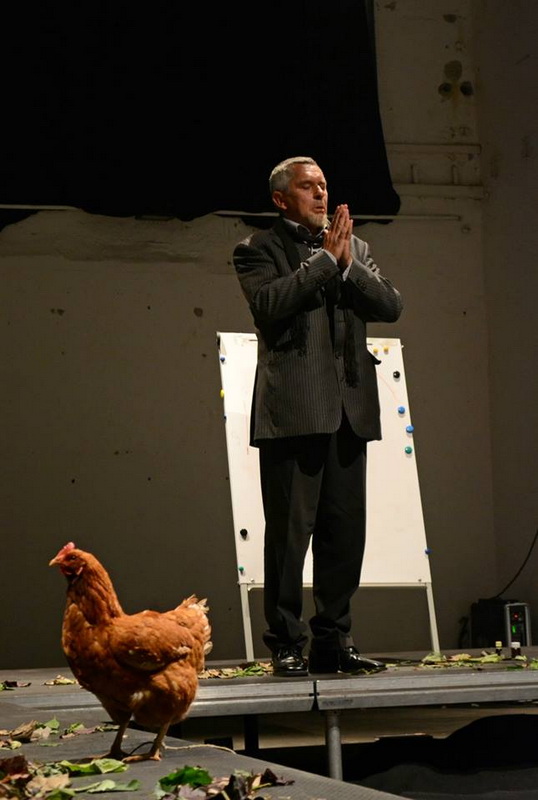
Ko je bolji glumac PROFILE: VANYA – TRUPA JORIK – YORICK TROUPE Uncle Vanya Дядя Ваня Chekhov
-
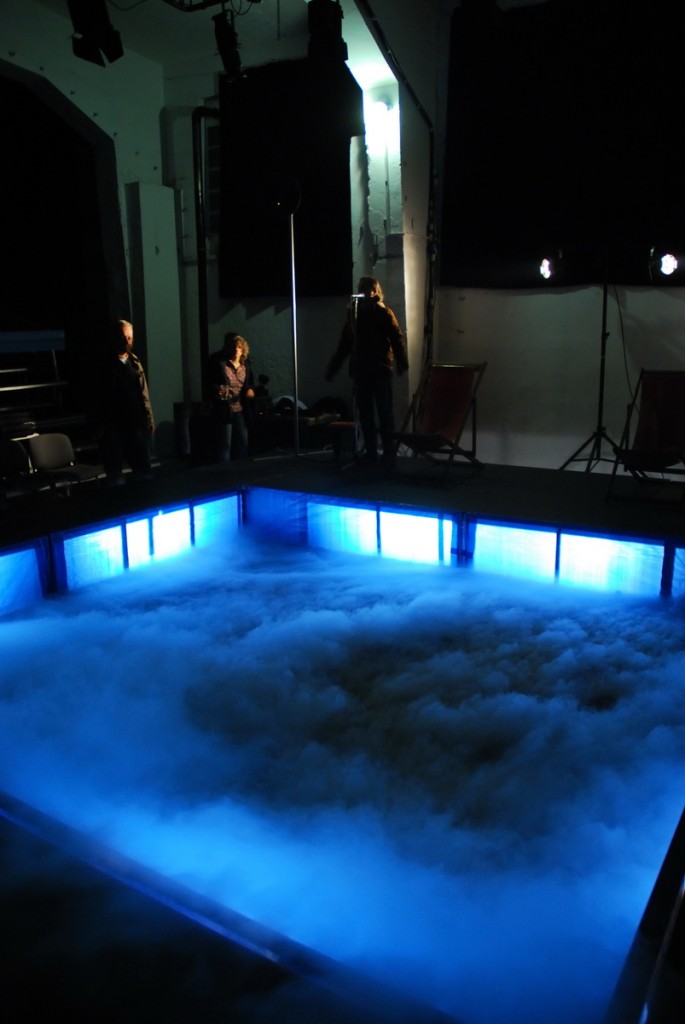
Profil Vanja (26) PROFILE: VANYA – TRUPA JORIK – YORICK TROUPE Uncle Vanya Дядя Ваня Chekhov
-
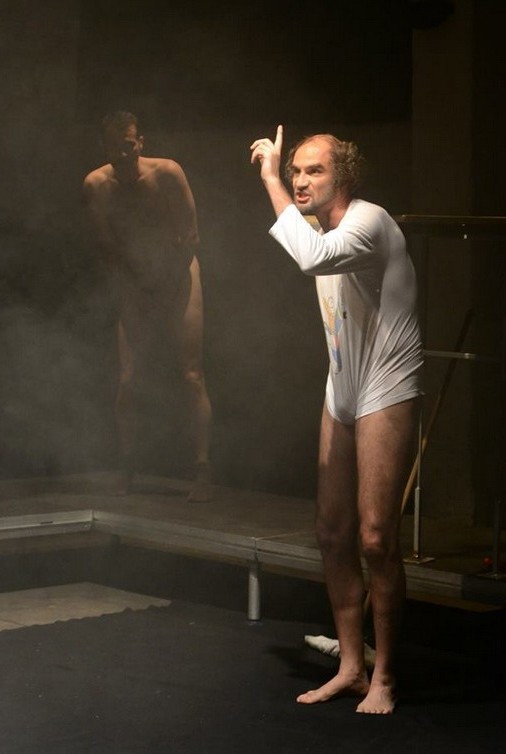
PROFILE: VANYA – TRUPA JORIK – YORICK TROUPE Uncle Vanya Дядя Ваня Chekhov
-
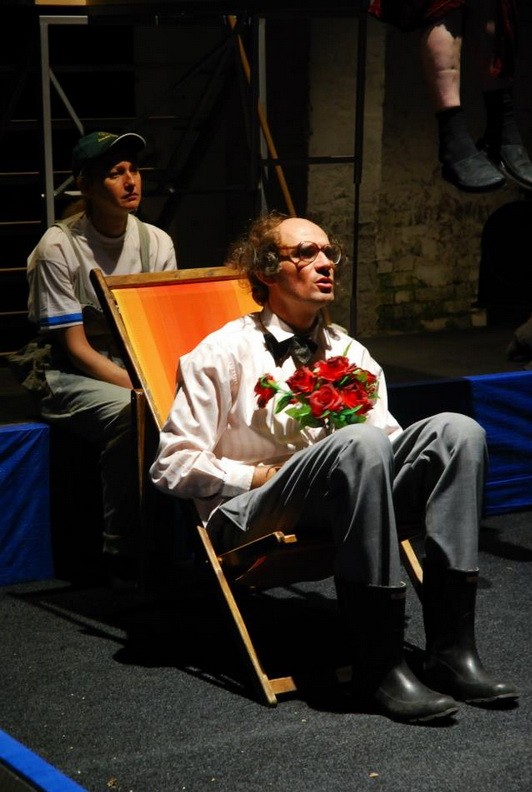
Profil Vanja (5) PROFILE: VANYA – TRUPA JORIK – YORICK TROUPE Uncle Vanya Дядя Ваня Chekhov
-
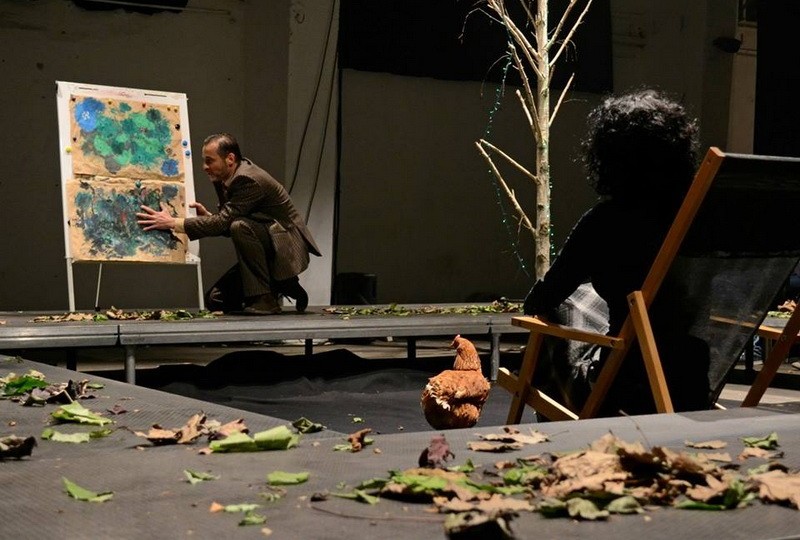
PROFILE: VANYA – TRUPA JORIK – YORICK TROUPE Uncle Vanya Дядя Ваня Chekhov
-
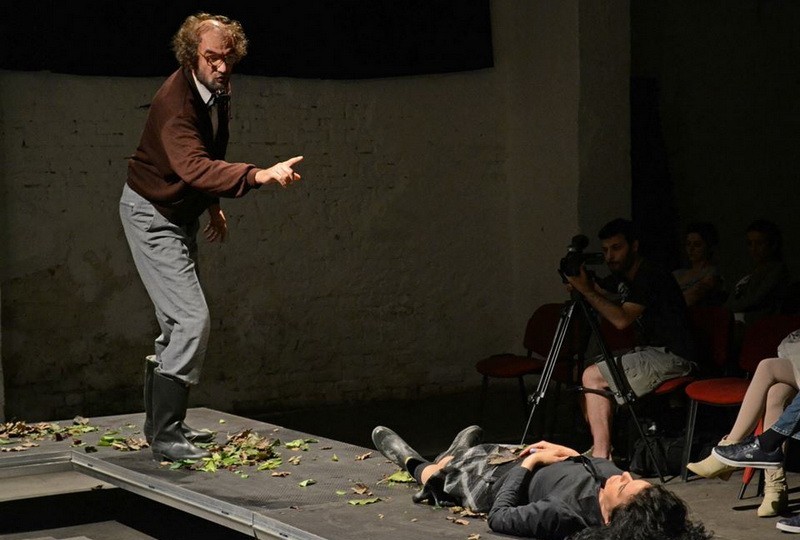
PROFILE: VANYA – TRUPA JORIK – YORICK TROUPE Uncle Vanya Дядя Ваня Chekhov
-
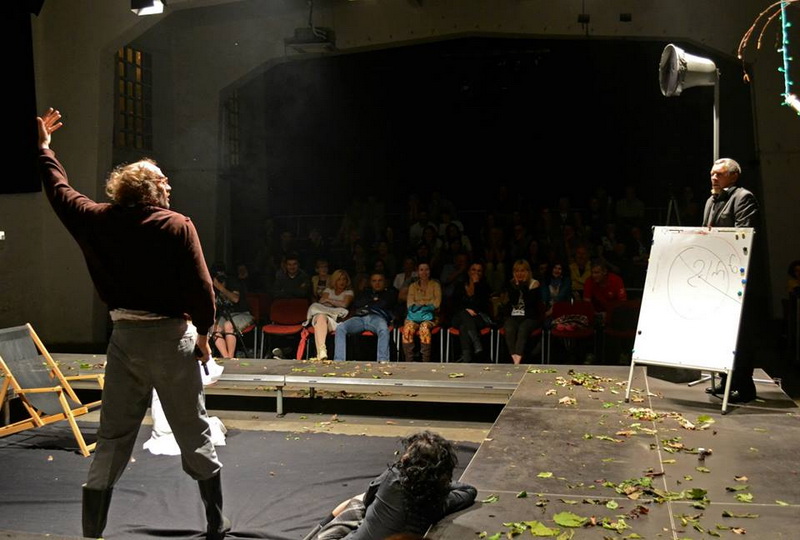
PROFILE: VANYA – TRUPA JORIK – YORICK TROUPE Uncle Vanya Дядя Ваня Chekhov
-
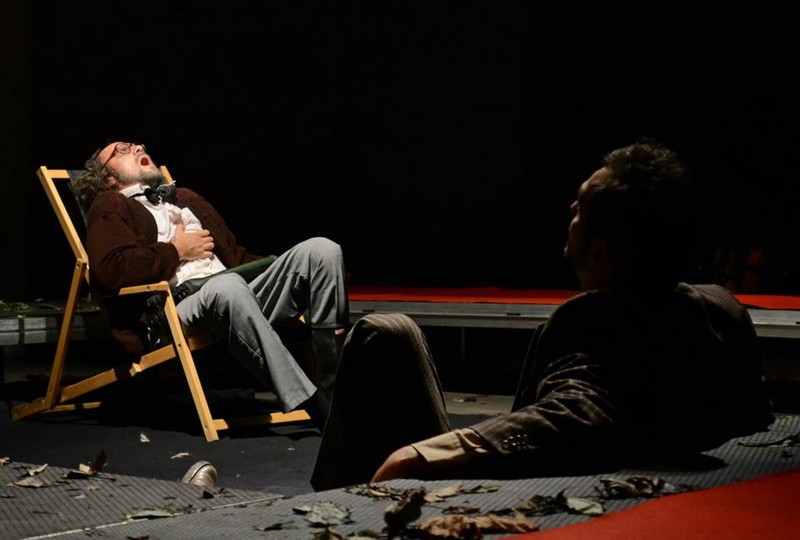
PROFILE: VANYA – TRUPA JORIK – YORICK TROUPE Uncle Vanya Дядя Ваня Chekhov
-

Profil Vanja (2) PROFILE: VANYA – TRUPA JORIK – YORICK TROUPE Uncle Vanya Дядя Ваня Chekhov
-
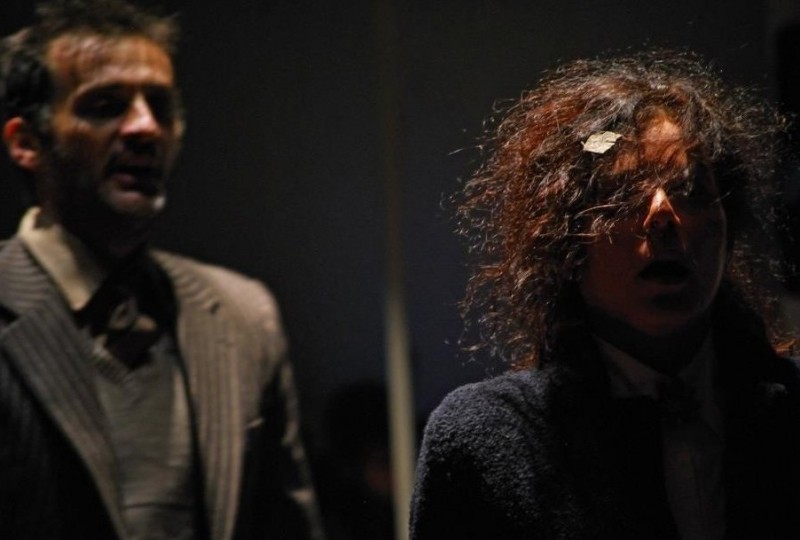
Profil Vanja (24) PROFILE: VANYA – TRUPA JORIK – YORICK TROUPE Uncle Vanya Дядя Ваня Chekhov
-
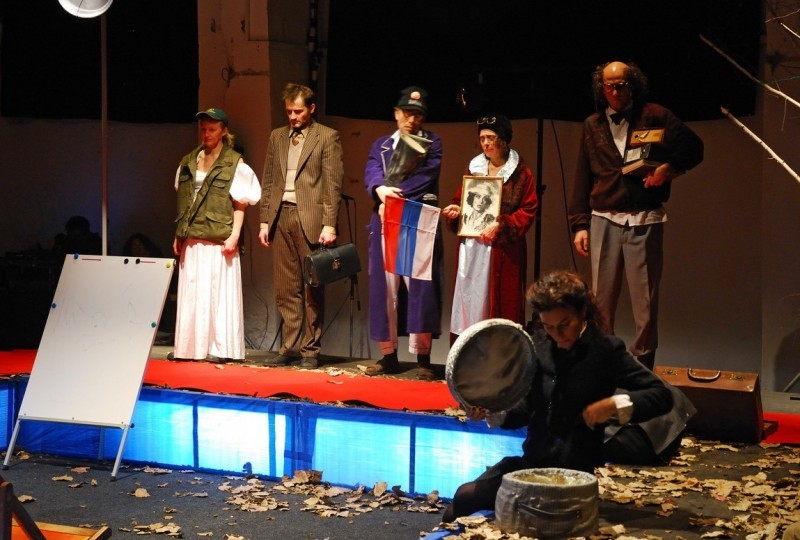
Profil Vanja (23) PROFILE: VANYA – TRUPA JORIK – YORICK TROUPE Uncle Vanya Дядя Ваня Chekhov
-
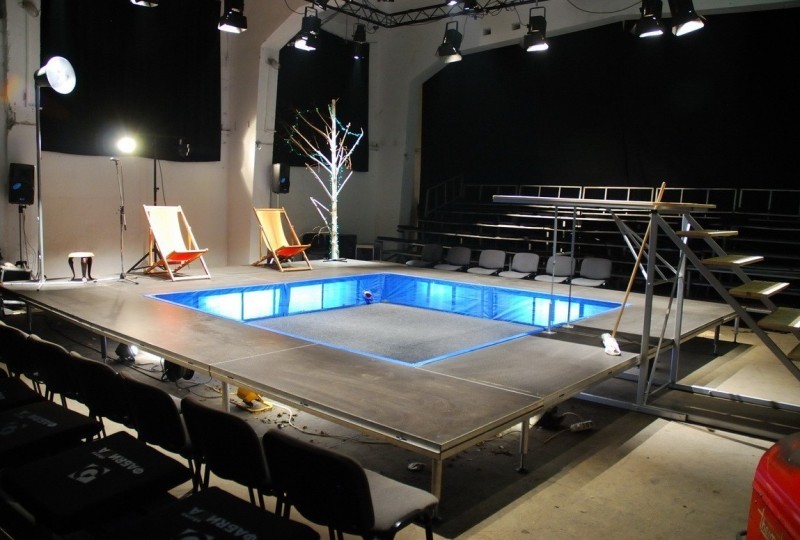
Profil Vanja (14) PROFILE: VANYA – TRUPA JORIK – YORICK TROUPE Uncle Vanya Дядя Ваня Chekhov

